Search results for "2010/02/2011/04/2009/10/writing-and-power"
Money makes the world go round
31 August 2012 | Fiction, Prose
Extracts from the novel Mr. Smith (WSOY, 2012). Introduction by Tuomas Juntunen
I have a confession to make.
I couldn’t have lived on my salary. Most people would solve this by taking out a loan, living on credit. I’ve never lived in debt. Instead I’ve had to make my modest capital grow by investing it – through the company, of course, because irrespective of their colour governments generally understand companies better than small investors. You have to make money somewhere other than the Social Security Office.
Work doesn’t make money; money makes money.
You have to let money do the work.
This is nothing short of a profound human tragedy: most people are forced to waste the majority of their lives, to use it in the service of complete strangers, for unknown purposes, doing something for money that they would never do if they didn’t have to. The most shocking thing is that people actively seek out this state of affairs, strive towards it; it is a goal towards which society lends us its full support, no less.
Such wage slavery is called ‘work’. More…
The engineer’s story
30 June 1981 | Archives online, Fiction, Prose
A short story from Maailman kivisin paikka (‘The stoniest place in the world’, 1980). Introduction by Pekka Tarkka
Coffee was going to be served down by the river. The engineer took my elbow and led me across his paved courtyard and over his lawn; we settled ourselves down in cane chairs under the trees. Mirja came out of the house with a tray of coffee and coffee-cups, a loaf of sweet bread, already cut, some marble cake and some biscuits. The engineer said nothing. My eye wandered over the ample weeping birches by the river, the mist creeping up in the cool of the evening and shifting in the cross-pull of the breeze and the current, and I watched Mirja moving under the trees back to the house and then down again to the riverbank.
As we sipped our coffee we spoke about chance, and the part it plays in life, about my husband – for I was able to speak about him now: enough time had gone by. The engineer eased himself into a comfortable position, gave me a quick look and then launched off into an account of his own, about his trip abroad:
I spotted the news item as I was going through the morning paper on the plane. I sat more or less speechless all of the first leg, listening to Kirsti and her husband confabulating. I didn’t say anything during the stop-over in Copenhagen, either, where they wanted to get some schnapps and, of course, some chocolate ‘if Kirsti would really like some’. We came rushing back into the plane just as the last English, German and Danish announcements were coming over, and then we sat waiting for the take-off. That was delayed too because of a check-up (not announced), and then we were off again for Zurich, me without a word and they whispering together. Then it was the bus as far as the terminal, and after that a taxi to the hotel. Quite clearly Kirsti hadn’t heard a thing about it yet, and probably hadn’t had much contact with Erkki for quite some time, her new husband even less. More…
Figuring out father
18 October 2012 | Extracts, Non-fiction
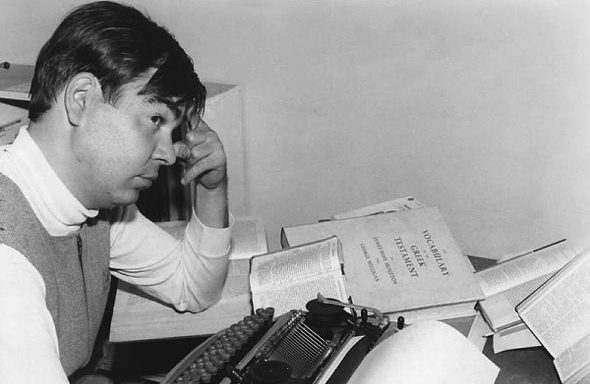
Pentti Saarikoski (1960s). Photo: Otava/Nikolai Naumoff
The poet and translator Pentti Saarikoski (1937–1983) jotted in one of his journals: ‘I have never cared for relatives.’ Thirty years after his death one of his five children set out to find out what his father was like – by reading almost all he left behind in writing; these comments by Saska Saarikoski are from his Sanojen alamainen (‘Servant of words’, Otava, 2012), an annotated selection of Pentti Saarikoski’s thoughts
Pentti Saarikoski died when I was 19. I remember complaining to my mother that I had not yet even got to know my dad. My mother answered: You’ve got plenty of time, the real Pentti is to be found in his books. She did not know how right she was, for she meant Pentti’s published books, not knowing what a mountain of texts awaited its readers in the archives of the Finnish Literature Society. Pentti had written everything down in his diaries.
I read Nuoruuden päiväkirjat (‘Youthful diaries’), published soon after Pentti’s death in 1983, as soon as they were published, but when his Prague, Drunkard’s and Convalescent’s Diaries appeared around the millennium, they went straight on to my library shelf. I was not terribly interested in the ramblings of Pentti’s alcoholic years.
It could be that my reluctance was influenced by the cool attitude I had adopted from early on in relation to my father. Other people were welcome to consider him a genius; for me, he was a father who did not telephone, write or come to see my football matches. I didn’t call him, either; for me, it was a father’s job. More…
Misery me
Extracts from the collection of short prose, Mielensäpahoittaja (‘Taking offense’, WSOY, 2010)
Past pushing up daisies
Well, yeah, so I took offense when the doctor said that considering my age I’m in tip-top shape. His theory was that my 25-kilometre ski circuits would keep an old coot like me in shape, if they didn’t kill me first. He said if I were to start just sitting on the couch and waiting, then the Reaper would be on my back in no time.
I don’t ski for my health. I ski because it’s pretty in the forest, and when a body is sweating he doesn’t think a whole lot. More…
Jera Hänninen & Jyri Hänninen: Tuhansien aatteiden maa. Ääriajattelua nyky-Suomessa [Land of a thousand ideologies. Extremist thought in contemporary Finland]
11 March 2011 | Mini reviews, Reviews
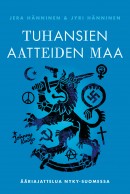 Tuhansien aatteiden maa. Ääriajattelua Nyky-Suomessa
Tuhansien aatteiden maa. Ääriajattelua Nyky-Suomessa
[Land of a thousand ideologies. Extremist thought in contemporary Finland]
Helsinki: Johnny Kniga Kustannus, 2010. 267 p.
ISBN 978-951-0-36072-9
€ 30, paperback
There are a number of extremist ideologies with a foothold in Finland. Even though most such groups are very small, religious and political extremism have experienced growth and do not always remain on the margins. The authors of this book have chosen to include only those ideologies whose efforts are clearly directed against particular groups or that would result in an erosion of democracy if they were to gain some real power. Topics receiving the greatest amount of attention in the media have been immigration and the polarisation within the Finnish Lutheran Church. According to some reports, the Church is being split over the issues of female clergy and homosexuality. This book also covers Finnish-born Islamists who support Sharia law, Communists who distort history and venerate the Soviet Union, honour killings carried out in Finland, and NRA Finland, a hard-line pro-gun lobbying organisation. The authors also discuss how these zealots, having gained more support, have also begun to influence the positions of mainstream political parties.
Translated by Ruth Urbom
Henrik Meinander: Kekkografia. Historiaesseitä [Kekkography. History essays]
1 April 2011 | Mini reviews, Reviews
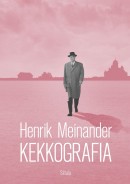 Kekkografia. Historiaesseitä
Kekkografia. Historiaesseitä
[Kekkography. History essays]
Suomentanut [Translated into Finnish from the original Swedish texts by] Matti Kinnunen
Helsinki: Siltala, 2010. 229 p.
ISBN 978-952-234-040-5
€ 34, hardback
Professor Henrik Meinander examines the forces that have shaped Finnish history and the controversial issues that have marked its development; Finnish history and culture were formed by chain reactions in European power politics. Finland did not emerge as a nation until the 19th century, as a by-product of the Napoleonic wars, and the independence of 1917 was not the result of an autonomous process of national development but rather a consequence of events elsewhere, especially in Russia. The history of independent Finland is roughly equal in length to that of the Soviet Union; in the early 1990s the Soviet Union collapsed, and Finland joined the European Union. The author does not take a position on the desirability of this development, and points out that the increasing integration and globalisation Finland’s era of independence may appear to be only a transitory phase. President Urho Kekkonen (1900–1986), who influenced Finnish politics for half a century and whose name gives the work its title, figures in approximately half of the texts.
Translated by David McDuff
Vieraita työssä. Työelämän etnistyvä eriarvoisuus [Foreign workforce. Increasingly ethnic inequality in working life]
21 January 2011 | Mini reviews, Reviews
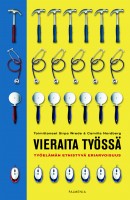 Vieraita työssä. Työelämän etnistyvä eriarvoisuus
Vieraita työssä. Työelämän etnistyvä eriarvoisuus
[Foreign workforce. Increasingly ethnic inequality in working life]
Toim. [Editors]: Sirpa Wrede & Camilla Nordberg
Helsinki: Gaudeamus, 2010. 285 p.
ISBN 978-951-570-776-5
€20, paperback
There has been a great deal of discussion in Finland about whether educated people should be recruited from abroad for high-level positions, and whether immigrants with lower levels of education could redress the labour shortage in low-paid fields. In this collection of twelve scholarly articles, sociologists have situated immigrants into the field of research into the workplace. This book seeks answers to questions about the factors that hamper immigrants’ acceptance into Finnish society and how ethnic otherness is determined in public discourse by those in positions of power within society. The fields of work investigated include health care, food service, building trades and highly skilled immigrants. Immigrants’ perception of discrimination in hiring is addressed in an article by Pakistani-born Akhlaq Ahmad, based on his PhD thesis. Ahmad himself replied to 400 job advertisements and compared his progress in the recruitment process to the experiences of a Finnish test subject with similar educational qualifications. He received a favourable response rate of 1.5 percent, compared to 25% for the Finnish control. This book also considers media images of immigrants and traditional ethnic hierarchies in the workplace.
Do you remember the yellow house?
14 February 2011 | Fiction, Prose
Extracts from the novel Enkelten kirja (‘The book of angels’, Tammi, 2010)
[Tallinn, summer] The past will not go away
and the present is insurmountable. Summer vacation has begun, the newspaper hasn’t come; it doesn’t get delivered here anyway. Can you remember the Isabelline yellow house? Remember the alley with the name that means hurry? Surely you remember the home with all the maps on the shelves, the important papers and the brass objects bought from nearby antique dealers? Also the rugs from North Africa and the obligatory cedar camel figurines on the windowsill. And so many glasses and plates and empty lighters in a cardboard box on the shelf on the left hand side of the kitchen.
Tallinn, June 7th. The floors creak. One step has split in half; some of the lights have burned out. This is a lovely home. A small window upstairs is ajar to the courtyard. Tuomas had latched it behind the Virginia creepers. The fountain in the courtyard is dry. On cold nights the smoke from the fireplace grows like a statue for the crows until it wraps around over the layered rooftops like a snake eating its tail. Russian men are repairing the attic of the house across the street for wealthy people to live in; they laugh in front of the window and smoke. Tuomas waves at them, and they wave back. The courtyard is creepy when it’s empty. Soon the neighbours would go about their day and quietly close their doors behind them, and two nearby churches would divide the hours into quarters, Russians and their gossip would make their way to the Alexander Nevski Cathedral, and the Estonians and their gossip would go to their own churches where a wise and peculiar, almost human scent would rise from between the headstones. Tuomas wouldn’t smell it, Aino would and would move to stand beneath the the center tower. More…
Out of the body
13 January 2011 | Reviews
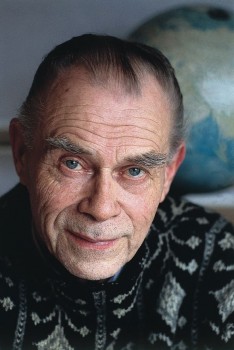
Veikko Huovinen. Photo: Irmeli Jung
‘Where will you be spending your eternity?’ ‘A spot of transmigration’, a short story by Veikko Huovinen (1927–2009), immediately confronts its main character, a man named Leevi Sytky, with this ultimate question.
Behind it is the sense of sin and fear of damnation typical of the religious life of northern Finland. Anyone who has made it as far as this final short story of Huovinen’s 1973 collection, Rasvamaksa (‘Fatty liver’) will, however, not make the mistake of taking the question too seriously; something diverting is clearly once again on offer.
Soon Leevi Sytky takes his leave of life in slightly sinful circumstances, but in the hereafter it turns out that these are not looked upon with disapproval. More…

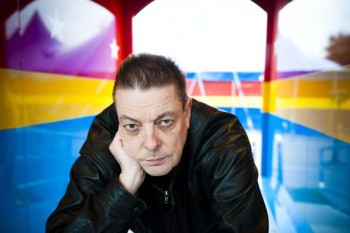
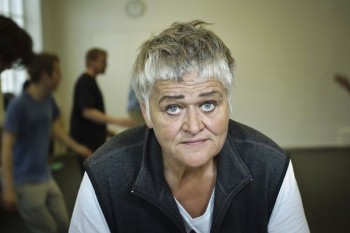
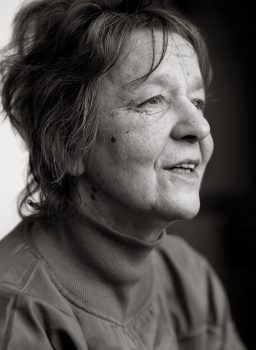

 For an extraordinary period between 1944 and 1956 part of Finland – the Porkkala peninsula, close to Helsinki – was leased to the Soviet Union as a military base. Inspired by the photographs by Jan Kaila, Olli Jalonen explores those silenced and mysterious years, which prompted Finns to ask the question: what if the whole of Finland had succumbed to the same fate?
For an extraordinary period between 1944 and 1956 part of Finland – the Porkkala peninsula, close to Helsinki – was leased to the Soviet Union as a military base. Inspired by the photographs by Jan Kaila, Olli Jalonen explores those silenced and mysterious years, which prompted Finns to ask the question: what if the whole of Finland had succumbed to the same fate?